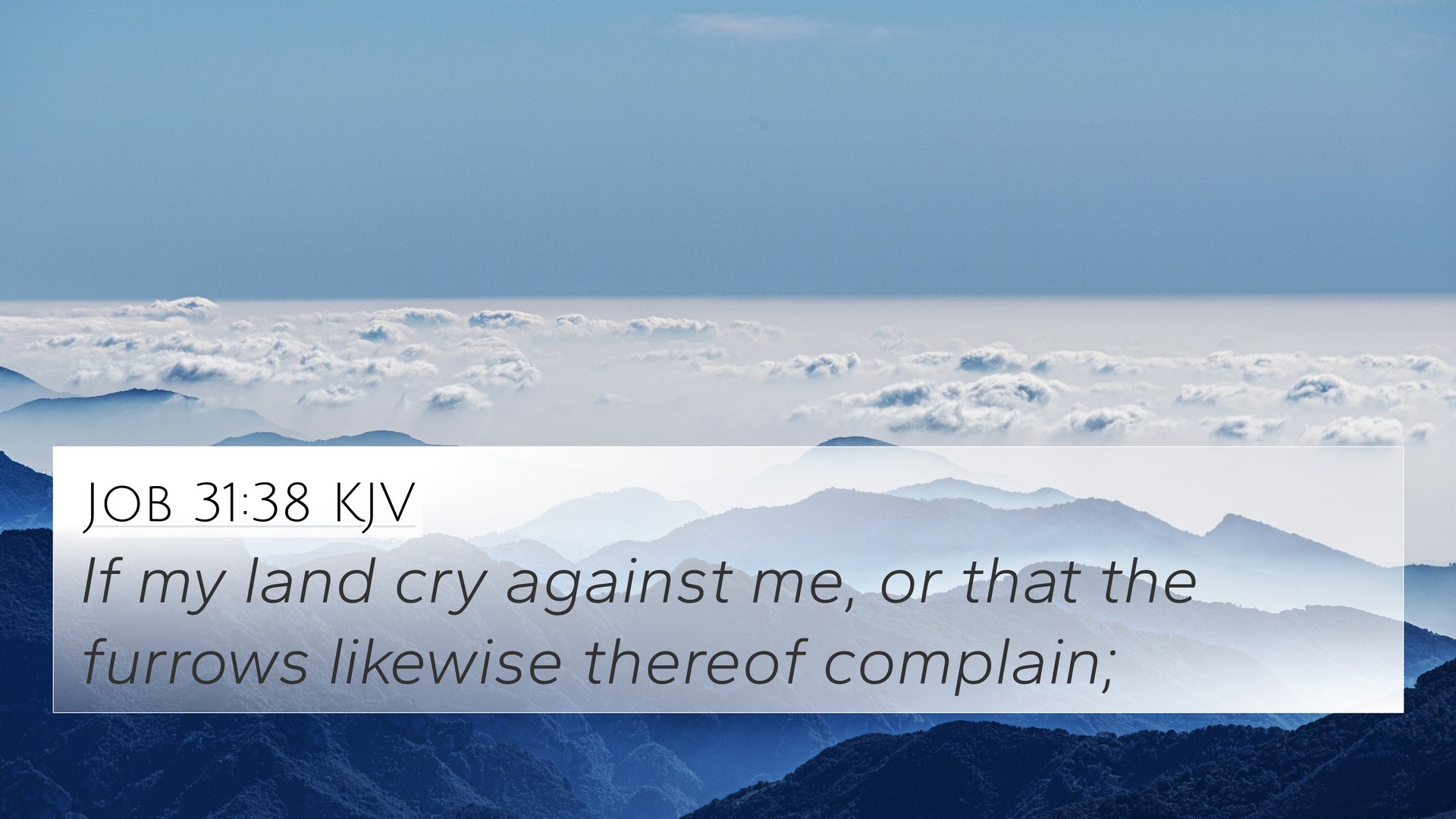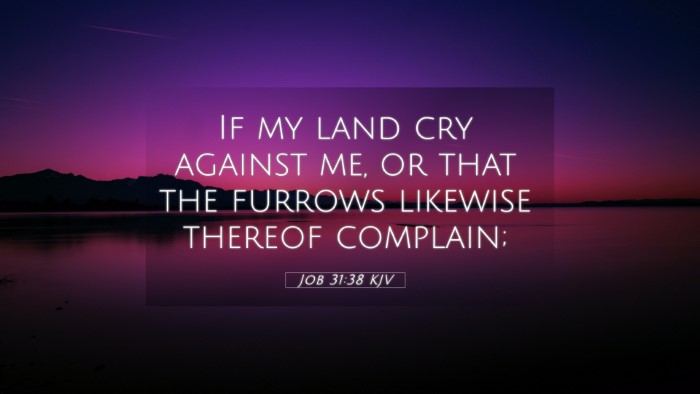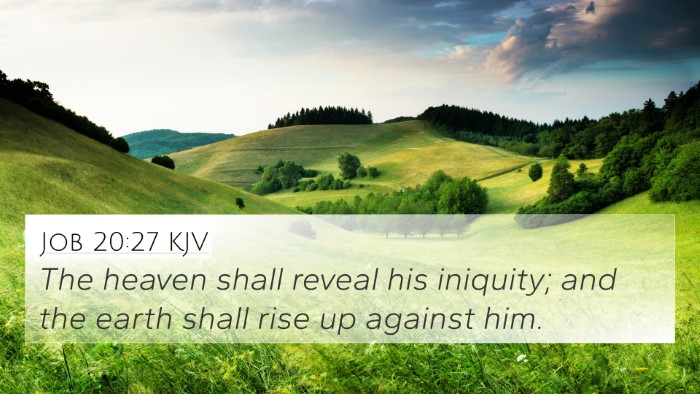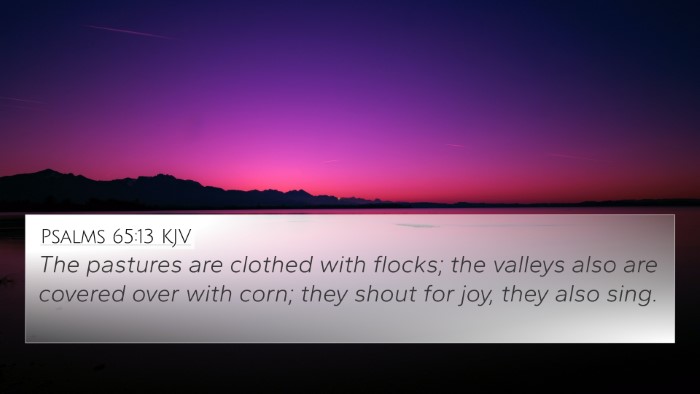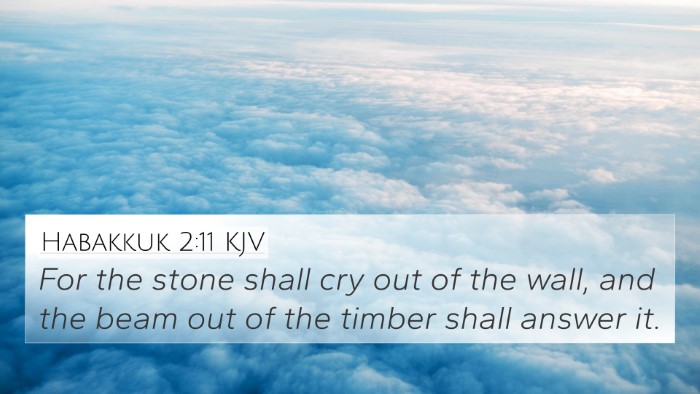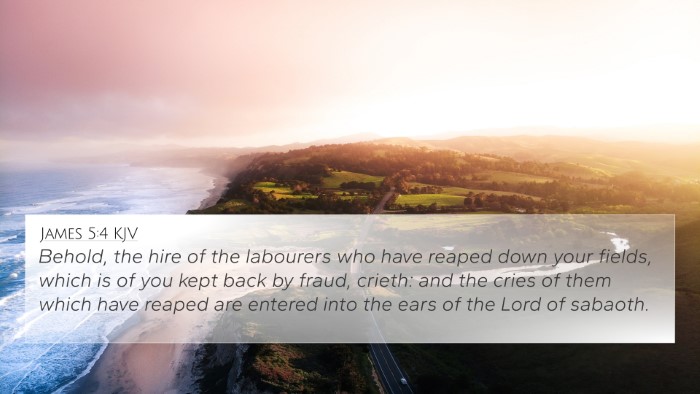Understanding Job 31:38
Job 31:38 reads: "If my land cries out against me, and all its furrows are wet with tears." This verse is a part of Job's declaration of innocence, where he implores God to testify on his behalf regarding his righteousness and treatment of others throughout his life.
This verse serves to illustrate Job's deep connection to his land and the agricultural society he belongs to. By personifying the land as able to cry out against him, Job underscores the gravity of his responsibilities toward his creation and the justice offered to those around him.
Insights from Public Domain Commentaries
-
Matthew Henry
Henry interprets this passage as Job's acknowledgment of the covenant relationship between people and the land. He notes that Job insists if he has been unjust, his land itself would bear testament to that injustice. He emphasizes the integrity of Job’s character, asserting that true righteousness should manifest itself even in one's dealings with the earth and its resources.
-
Albert Barnes
Barnes elaborates by highlighting the emotional weight of the imagery Job employs. The land crying out symbolizes the profound consequences of injustice. It signifies that not only human lives are affected by wrongdoing, but even the earth itself, demonstrating a holistic view of morality where human actions resonate throughout creation.
-
Adam Clarke
Clarke underscores the metaphor's purpose: to demonstrate the enormity of Job's claims of innocence. If Job has sinned against the land or its inhabitants, his own field would protest. This metaphor serves to reinforce the idea that a righteous life should not only be reflected in personal behavior but extend to how one interacts with their environment and neighbors.
Cross-References
To enhance our understanding of Job 31:38, we can look at several related Bible verses that highlight similar themes of justice, integrity, and environmental stewardship:
- Proverbs 12:10: "A righteous man cares for the needs of his animal, but the kindest acts of the wicked are cruel."
- Isaiah 1:17: "Learn to do right; seek justice. Defend the oppressed. Take up the cause of the fatherless; plead the case of the widow."
- Psalm 24:1: "The earth is the Lord's, and everything in it, the world, and all who live in it; for he founded it on the seas and established it on the waters."
- Jeremiah 22:16: "He defended the cause of the poor and needy, and so all went well. Is that not what it means to know me?"
- Luke 16:10: "Whoever can be trusted with very little can also be trusted with much, and whoever is dishonest with very little will also be dishonest with much."
- Romans 8:21: "That the creation itself will be liberated from its bondage to decay and brought into the freedom and glory of the children of God."
- Job 12:7-10: "But ask the animals, and they will teach you, or the birds in the sky, and they will tell you; or speak to the earth, and it will teach you, or let the fish in the sea inform you."
Thematic Bible Verse Connections
The exploration of Job 31:38 opens up multiple thematic connections that can guide deeper study and reflection:
- Justice and Compassion: Highlighted in Proverbs and Isaiah, these themes reinforce the interconnectedness of our actions and their repercussions.
- Responsible Stewardship: Seen in Psalm 24, we are reminded that the earth belongs to God, and our treatment of it reflects our values.
- Personal Integrity: Job's claim of innocence aligns with Luke's teaching on trustworthiness, urging us to be honest in all our dealings.
- Creation's Response: As noted in Paul’s epistle (Romans), the earth's suffering is intertwined with humanity's moral failures.
Tools for Bible Cross-Referencing
When engaging with scripture, tools for cross-referencing can greatly enhance comprehension. Using a Bible concordance or cross-reference guide can assist in finding connections between verses. Such resources allow for:
- Identifying cross-references relevant to specific themes or verses.
- Exploring parallel verses across different books of the Bible.
- Engaging with a comparative analysis of scripture, revealing the unity of biblical principles.
Conclusion
Job 31:38 stands as a profound testament to the relationship between humanity, justice, and creation. By examining this verse through the lenses of various commentaries and thematic connections, we gain a richer understanding of how our actions reverberate through the world around us.
